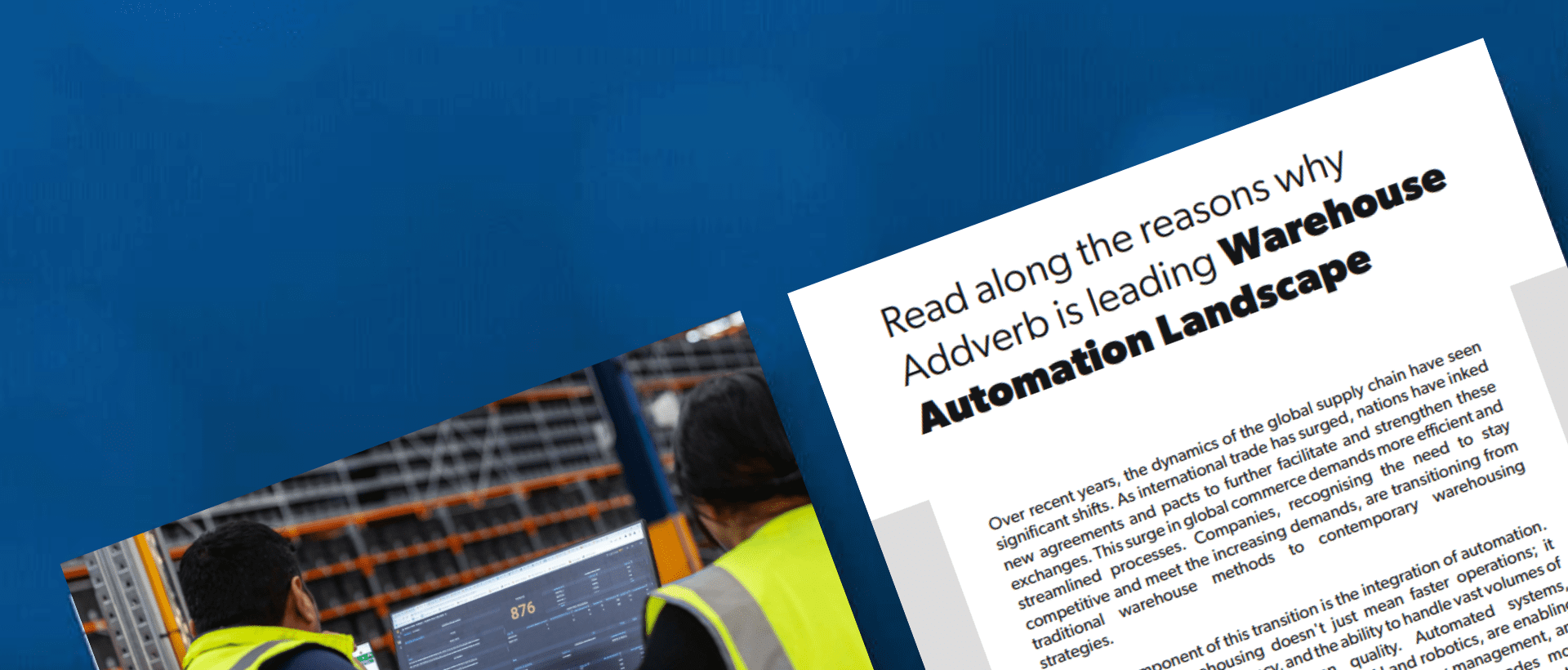
• Values and Technology you will get.
• Collaborations and partnerships that will help you.
• Advantages of working with Addverb.
Dynamics of the global supply chain have seen significant shifts. As international trade has surged, nations have inked new agreements and pacts to further facilitate and strengthen these exchanges. This surge in global commerce demands more efficient and streamlined processes.
Companies, recognising the need to stay competitive and meet the increasing demands, are transitioning from traditional warehouse methods to contemporary warehousing strategies. A pivotal component of this transition is warehouse automation.
Automation in warehousing doesn't just mean faster operations; it signifies accuracy, consistency, and the ability to handle vast volumes of goods without compromising on quality. Automated systems, powered by advanced technologies like AI and robotics, are enabling businesses to optimise storage, improve inventory management, and expedite order fulfilment.
In essence, as the world trades more, automation ensures that businesses can keep up, delivering on time and at scale. It's becoming evident that the industry requires reliable and leading warehouse automation partners. Embracing automation not only streamlines operations but also ensures resilience and efficiency in the face of evolving market demands. The right partner can transform these complexities into competitive advantages.